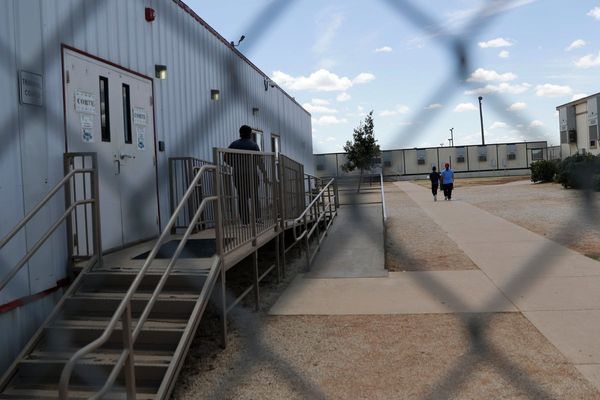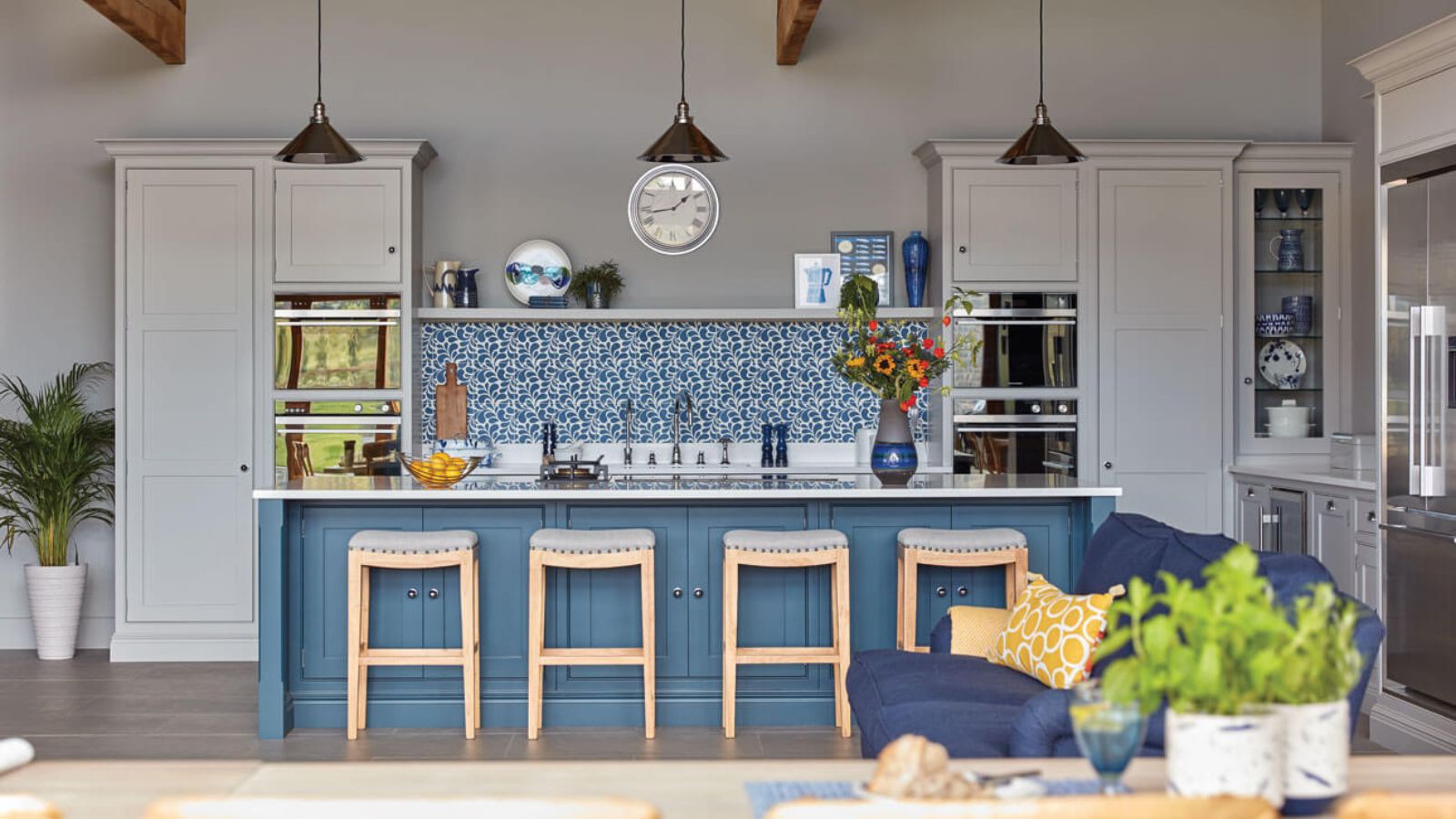
As the mercury climbs and summers continue to get hotter year on year, more of us are looking for quality investments to help keep our homes cool for this summer and beyond.
Luckily, there are some smart gadgets that can help control our internal climate and create a relaxing escape from the blazing heat.
Here, we reveal the five best investments from The Home Depot to help you design a home that stays cool.
5 ways to keep a home cool this summer with clever appliances
According to data from Climate Central, temperatures are increasing across all seasons across the United States, with summer temperatures hitting all-time highs year after year.
That makes smart cooling investments all the more important to keep a home cool in a heat wave, protecting your health and your property from all the ways summer heat can damage your home.
We suggest starting with these five essentials for a more comfortable summer.
1. Alter your fan direction
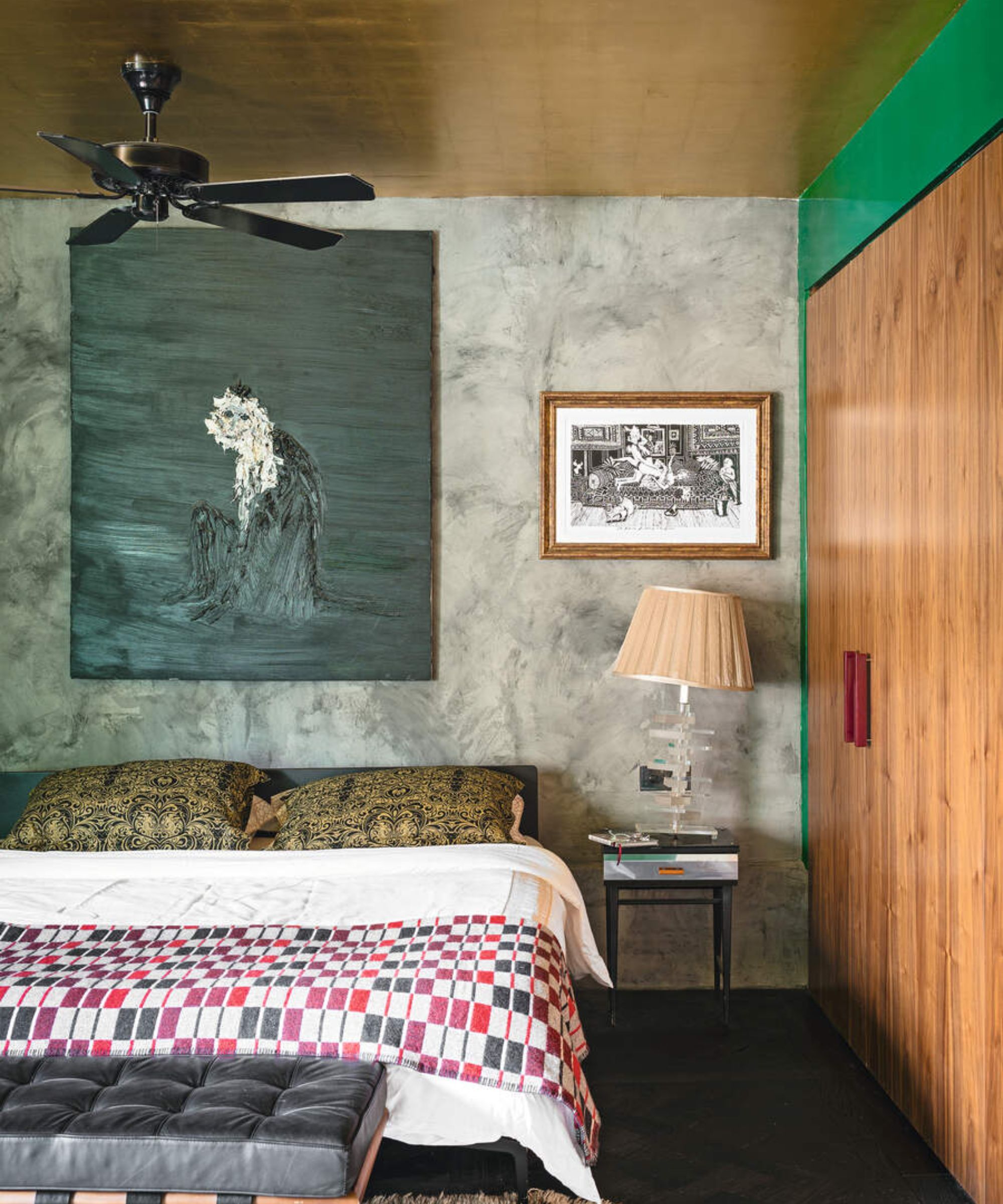
In the ceiling fan vs. air conditioner debate, air conditioners usually come out on top in terms of cooling.
However, investing in a quality ceiling fan can help to keep cool air circulating, helping you to feel cooler and reducing how long you have to run an AC unit, cutting energy bills over time, with savings up to 40%. adds Lane Dixon, VP of operations at Aire Serv, a Neighborly company.
The trick, however, is ensuring that you switch to the best fan direction to cool a room. Lane explains that running a fan anti-clockwise pulls hot air up and away from you, pushing cooler air back down. This then creates a ‘wind chill’ effect for those below.
Ceiling fans can also be more convenient than cooling a room with fans, as you do not need to move them around, nor find space in your home storage ideas to keep them out of the way in the colder months.
All prices were correct at the time of publication.
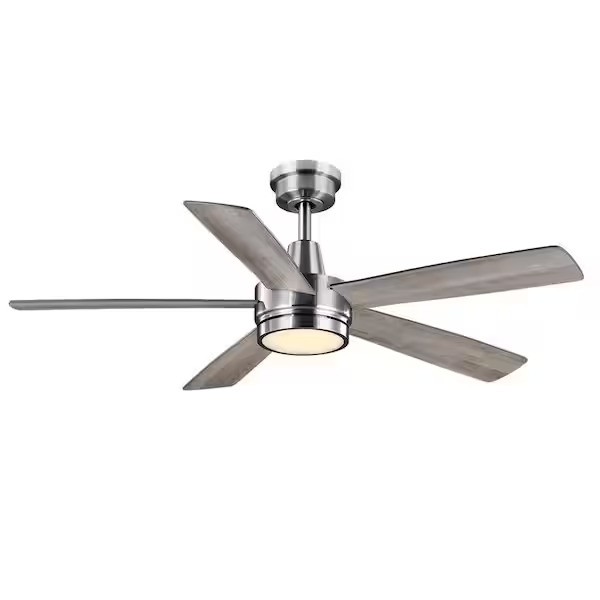
If you live in a hot, humid climate, a ceiling fan is essential. This excellent option has reversible blades, customizable LED lighting, and quiet, powerful airflow, all controllable by your Hubspace app. It's aesthetically pleasing and smart. A win-win for style and cooling success.
2. Consider extra AC Units
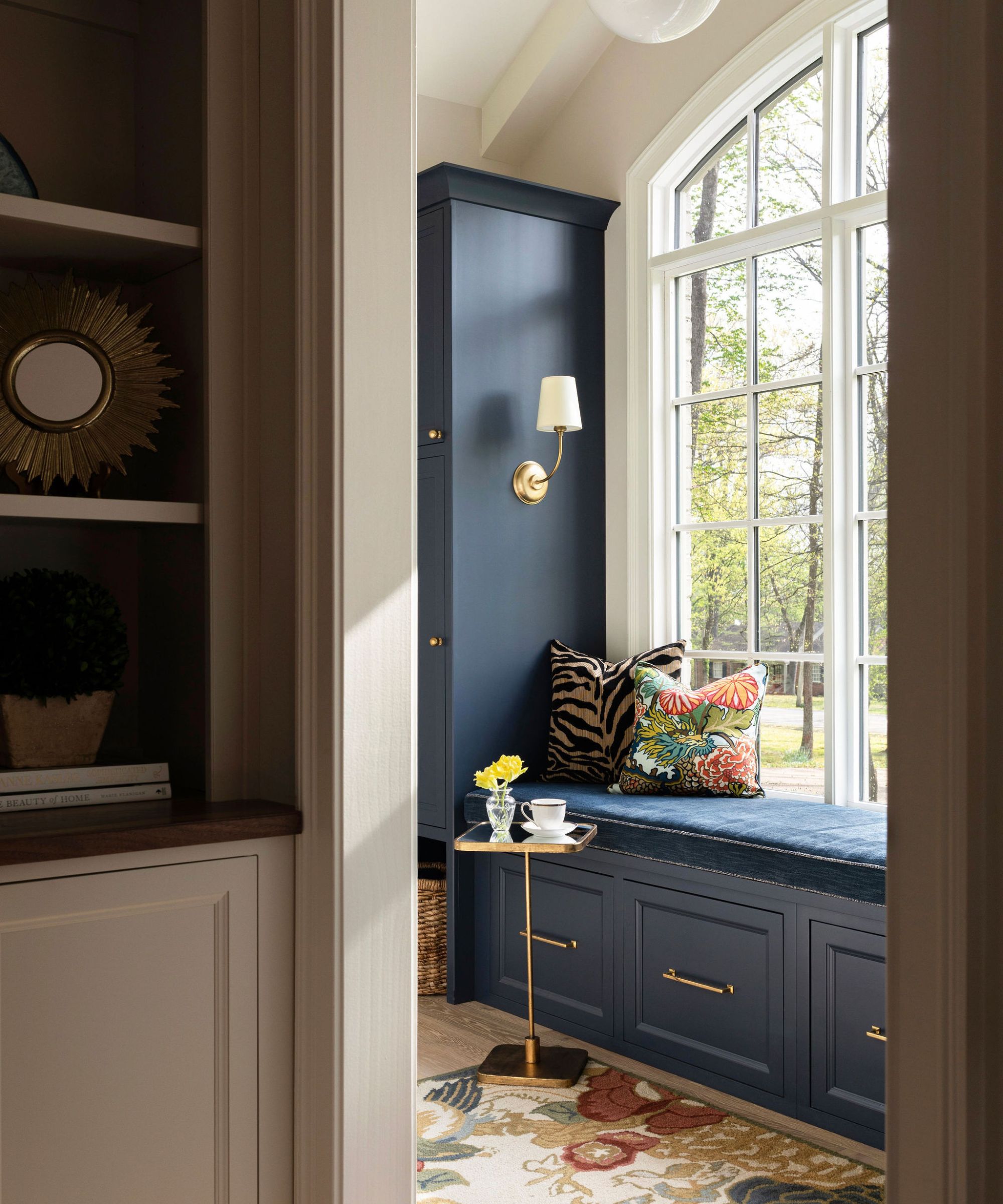
AC units are more expensive than a fan, but they actively cool down the air in a room, rather than move it around. This makes them a smart investment in very hot areas where the temperatures regularly reach dangerous levels.
If installing a particular air conditioning type is not an option, or you have spotted the signs it’s time to replace your air conditioner, but don’t want to fork out for expensive replacements, consider a portable unit instead.
When comparing portable air conditioners vs AC units, portable or window units are a lot more affordable up front, and can be moved to cool down the room you are using the most.
As Asif Bux, service manager at Comfort Union, explains, ‘This targeted approach reduces overall energy use and makes your home more comfortable,’ helping you to save money at home during the hotter months.
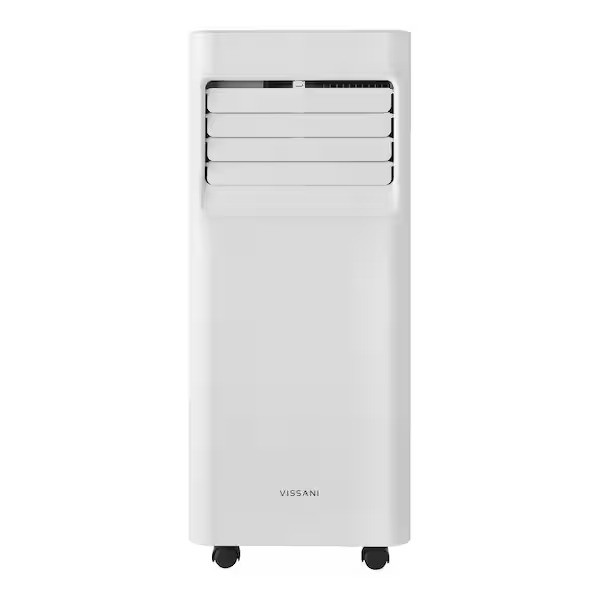
Keep any room in your house cool with the Vissani 6,000 BTU Portable AC. It has 3-in-1 climate functions and smart app control, and it's perfect for cooling rooms up to 250 square feet. Simply roll it to where you need it.
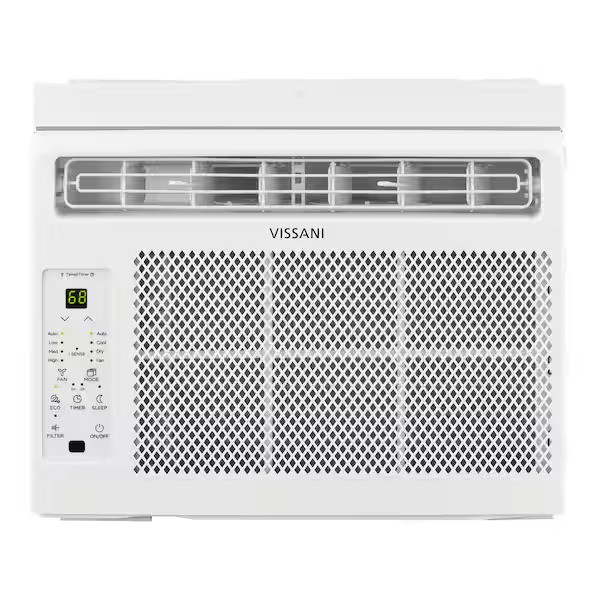
This easy-to-install mechanical window air conditioner is perfect for rooms up to 350 square feet. You can customize your cooling settings with seven temperature settings, two speeds, and two cooling modes.
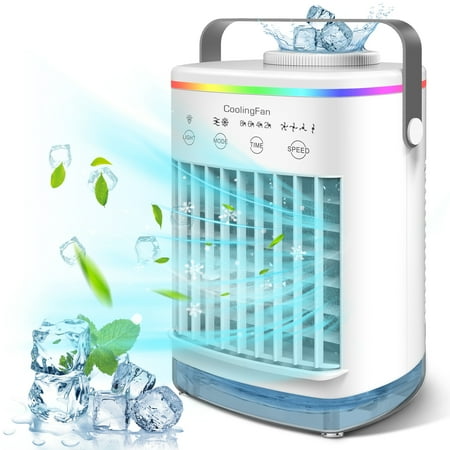
Trying to work or sleep in the heat? This mini portable AC unit fits on your desk or night stand to offer direct cooling.
3. Block out the sun
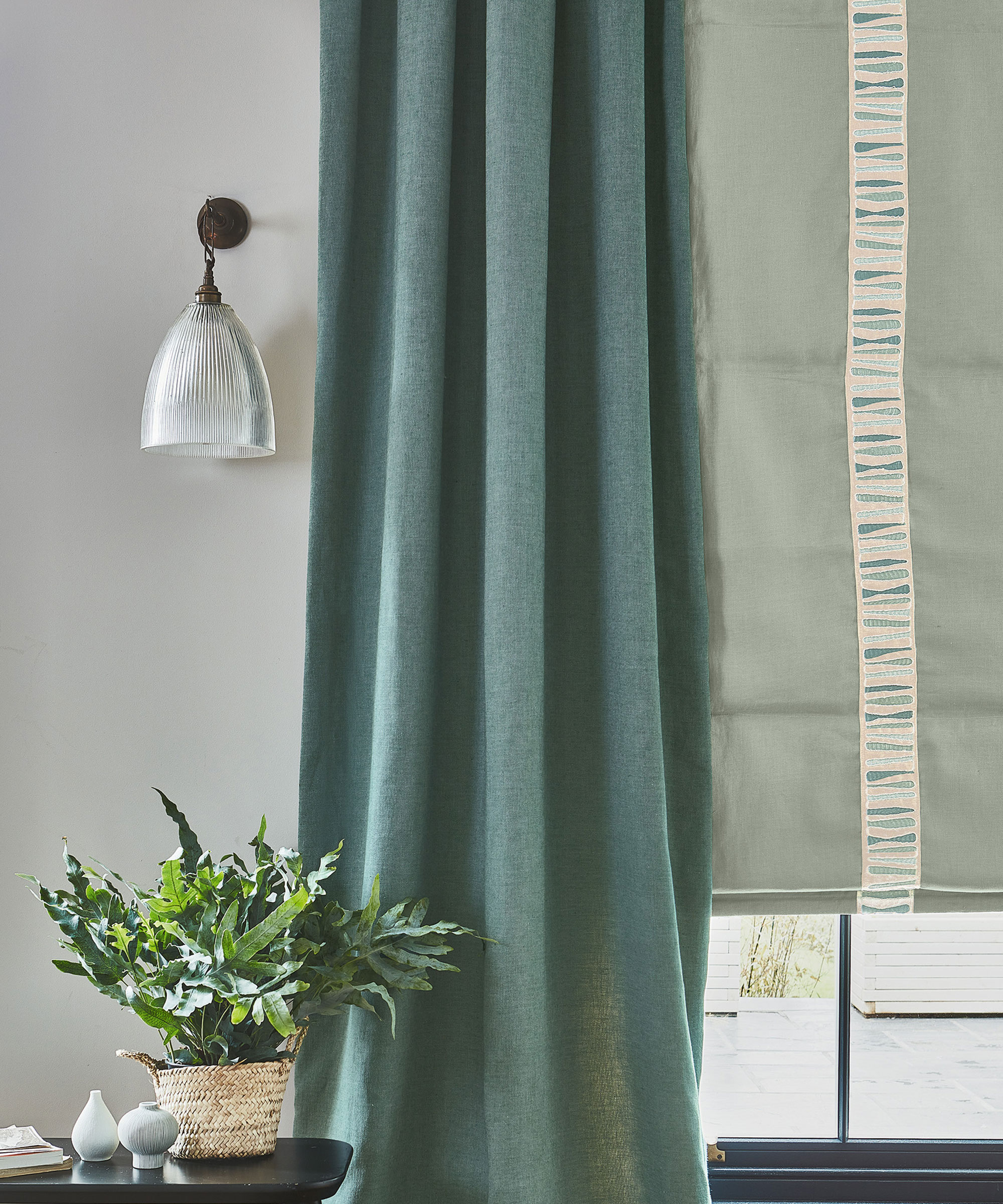
It may seem like a good idea to open all windows in an attempt to lower the temperature in your home, but in fact, it actually does the opposite.
Keeping all windows and blinds closed stops any hot air from circulating around your home, but once the temperature has dropped and it’s almost time for bed, you may want to open them to allow some cooler air to enter.
The caveat to this is if it's hotter or more humid outside at night than inside, in which case you should keep them closed.
Although blackout curtains can help keep heat out, blocking out all of the light is one of the many ways your home is making you feel tired. Instead, block out most of the sun's rays using light-filtering shades, helping to keep your home bright and accessible for use throughout the day.
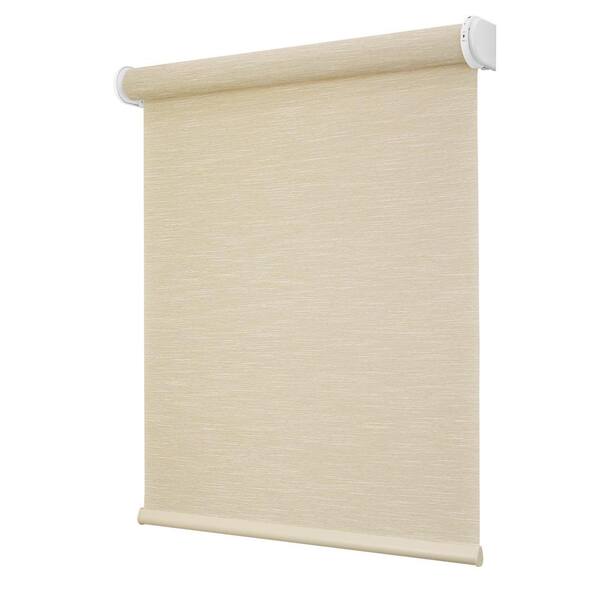
These cordless, motorized roller shades bring form, function, and a touch of luxury to your windows. With blackout and light-filtering options and remote or voice control via the Hubspace app, they create privacy and shade in those hard-to-reach spots.
4. Don't underestimate your thermostat
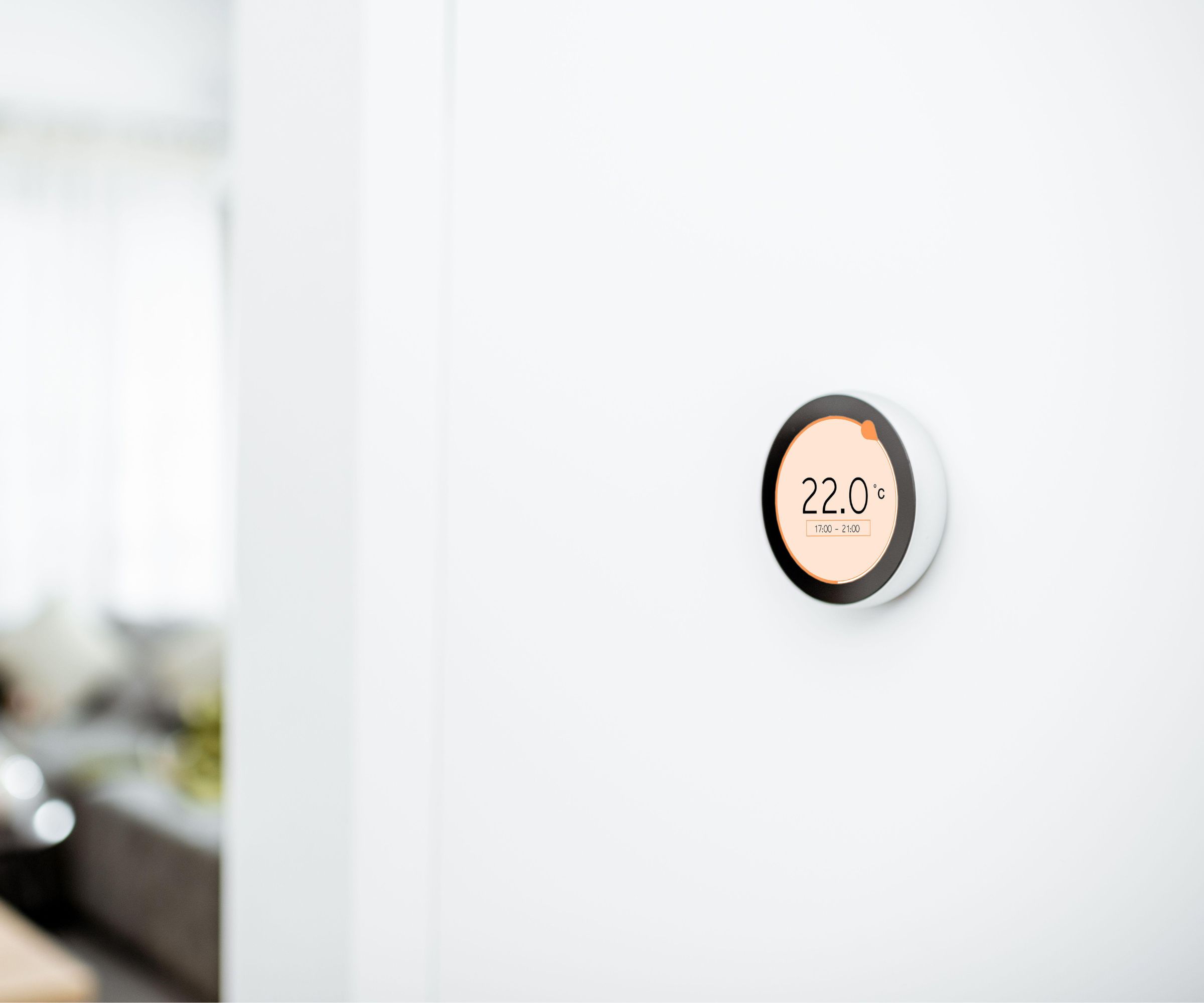
Many of us equate smart thermostats with winter heating schedules, but they can be just as important to keeping a house cool this summer.
Asif explains, ‘Pairing your AC with smart thermostats allows for precise control. These devices learn your schedule, reducing cooling when you’re not home and ramping it up just before you return.’
James Longley, managing director at Utility Bidder adds, however, that it is vital to pick the best temperature for a thermostat in summer for this to be effective. He warns, ‘It is also important to note that lowering your thermostat drastically doesn’t cool your home faster.
'Air conditioning units won’t typically operate at a consistent pace, and lowering your thermostat as low as possible will just mean it is working for longer. Instead, you should gradually lower the temperature in small bursts until you hit the sweet spot you want.’
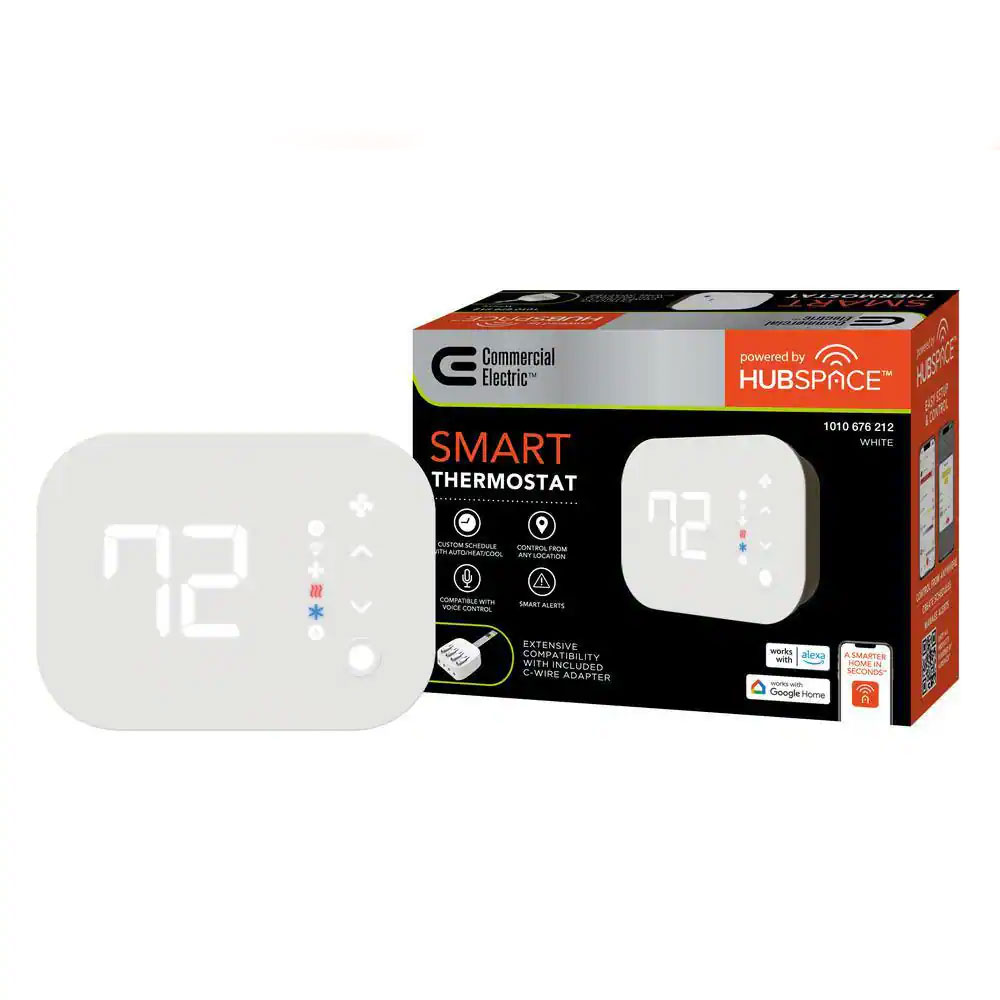
This smart thermostat makes it easy to manage your home's temperature. You can set custom schedules, adjust your settings remotely using voice commands, and enjoy a more energy-efficient space no matter where you are in the house.
5. Use covered outdoor areas
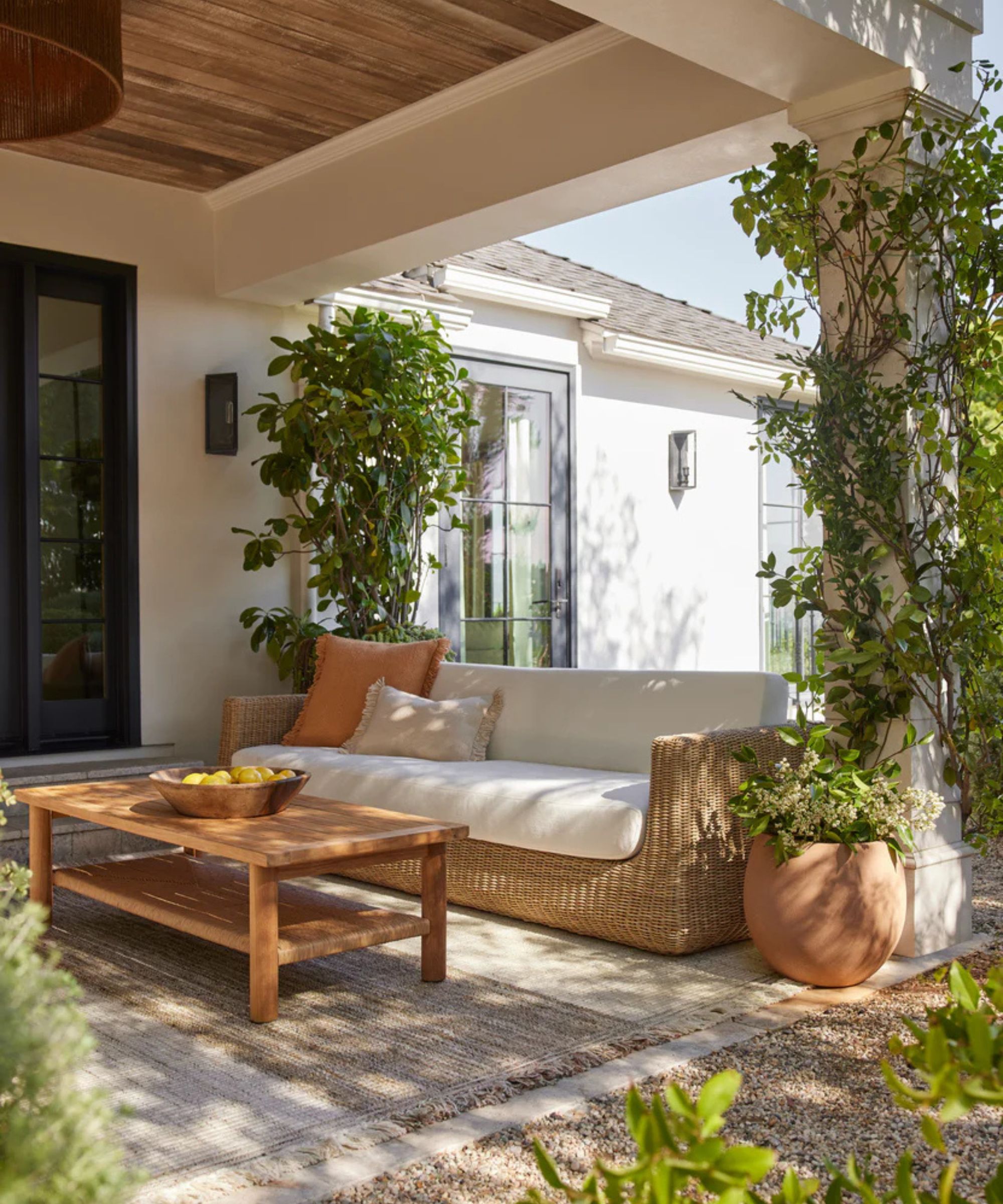
Some homes are naturally very warm, retaining heat easily and proving difficult to cool down. If this is the case, consider using covered outside areas around your home to stay cool.
Shaded outdoor seating areas, kitted out with hydration stations, can offer you some respite, especially if outside humidity is low or there is a breeze. Alternatively, create a cross draft with an outdoor fan.
Similarly, creating shaded areas around your doors and windows can limit the effect of the sun in your home, blocking out harsh sun rays and making ventilating your home in summer more pleasant.
Just be sure to install bug screens, such as these cut-to-size adhesive bug screens from Amazon, to prevent pests from getting in.
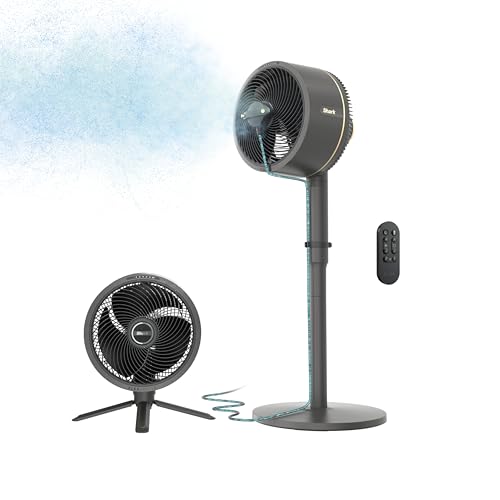
Rated the best fan you can buy by our testers, this fan works both corded and cordless, tabletop or pedestal, indoors or outdoors. It is the best portable fan is the best we've ever tested, offering strong airflow and unique features that set it apart from all others.
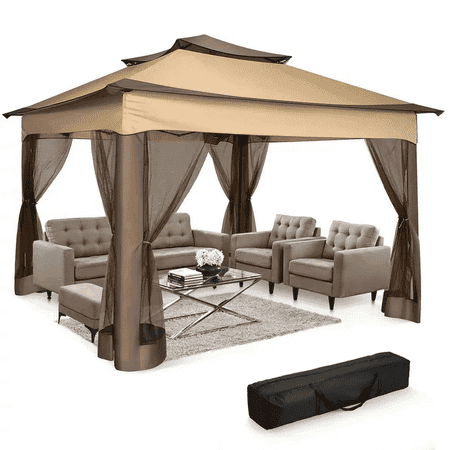
Don't have the budget or time for a built-in patio shade? This pop-up gazebo is the perfect alternative. It also comes with built-in bug nets to prevent pests from bothering you when outdoors.
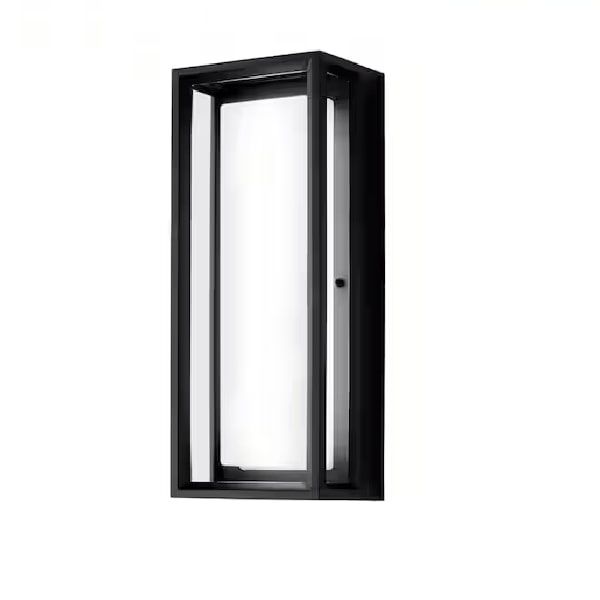
Easy to set up in under a minute using the Hubspace App, this color-changing LED wall sconce will transform your backyard into a magical space. As dusk descends, well-placed lighting can play a central role, drawing attention to plants and decorative features, creating a sense of depth and space with the interplay of light and shadow.
FAQs
How hot is too hot indoors?
It is advised that you keep your home below 80° Fahrenheit in summer. A home any hotter can pose a health risk, especially to young children, the elderly, and pets.
Meet the experts
Struggling with sudden temperature increases? We have rounded up all of the fastest ways to cool a house for quick acting comfort in summer heatwaves.





